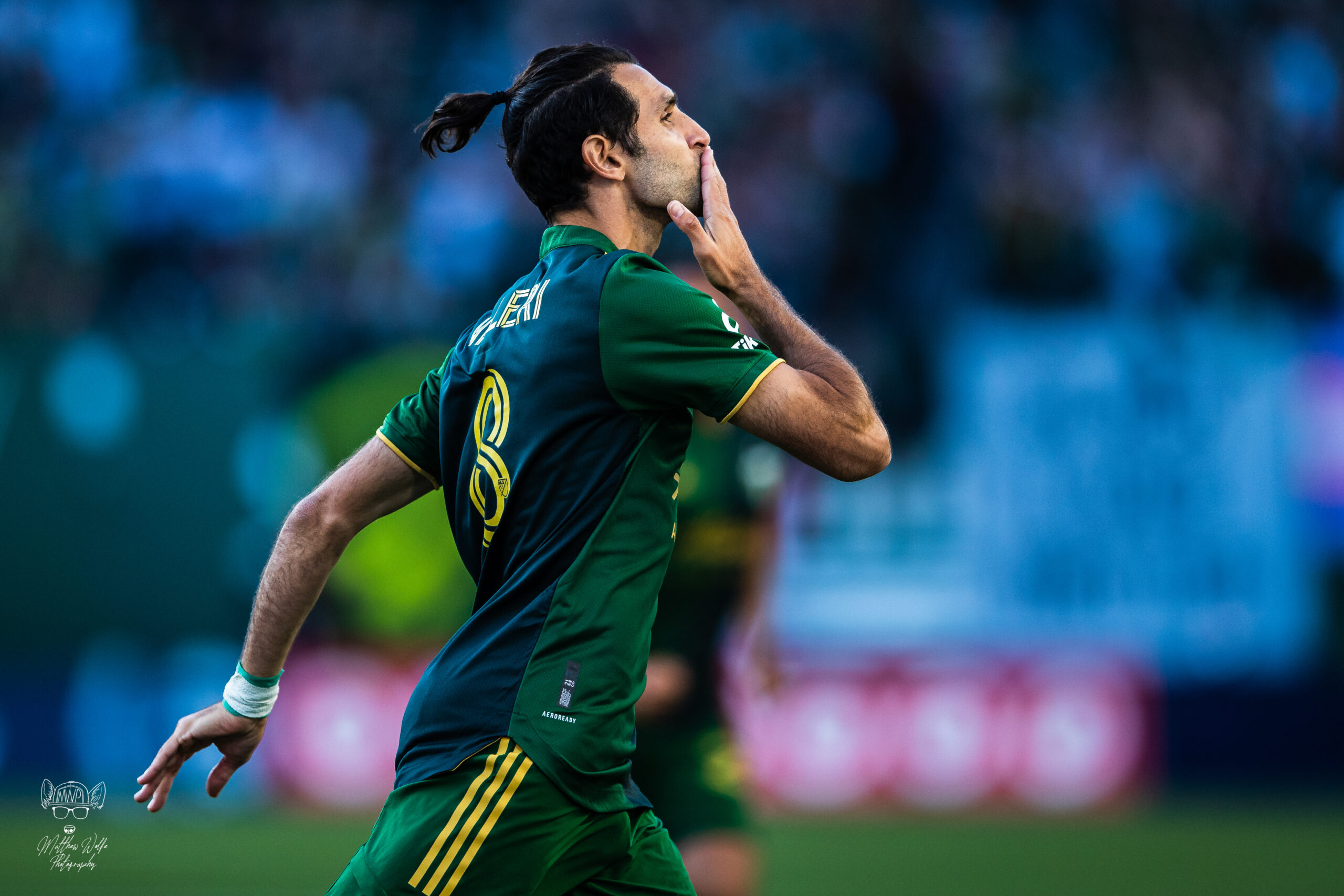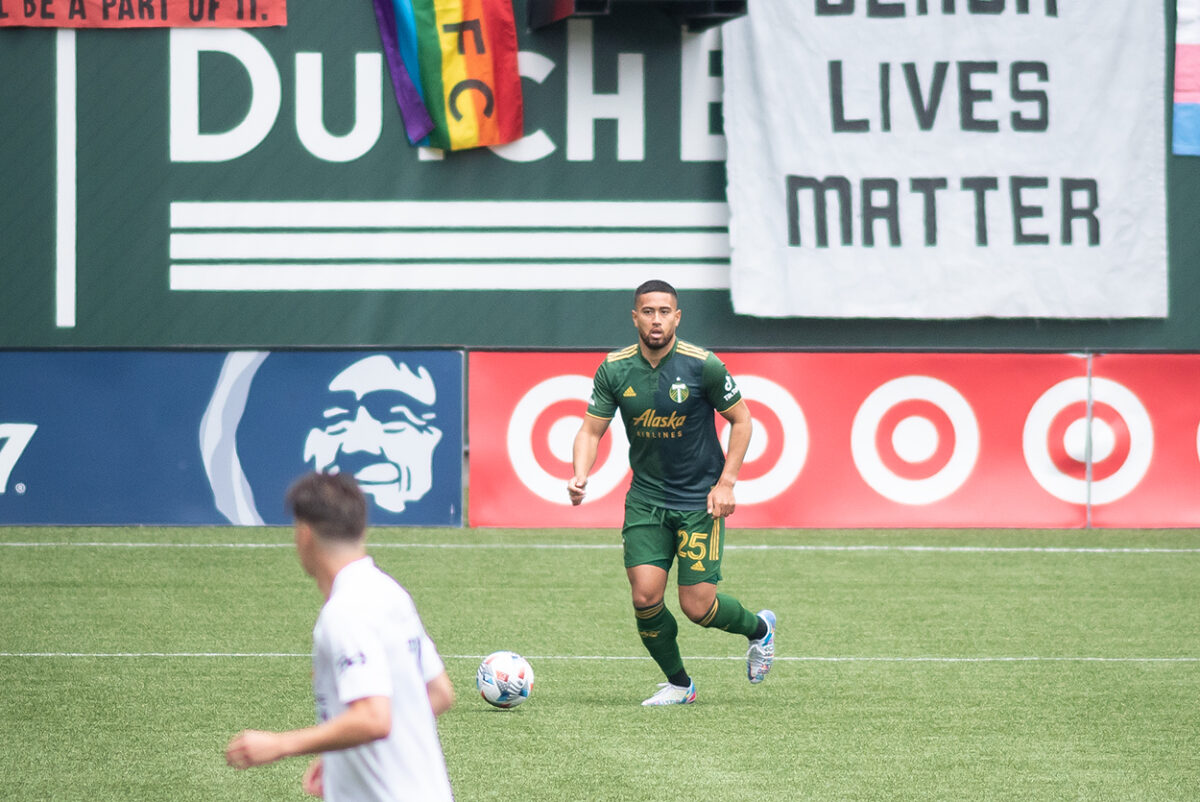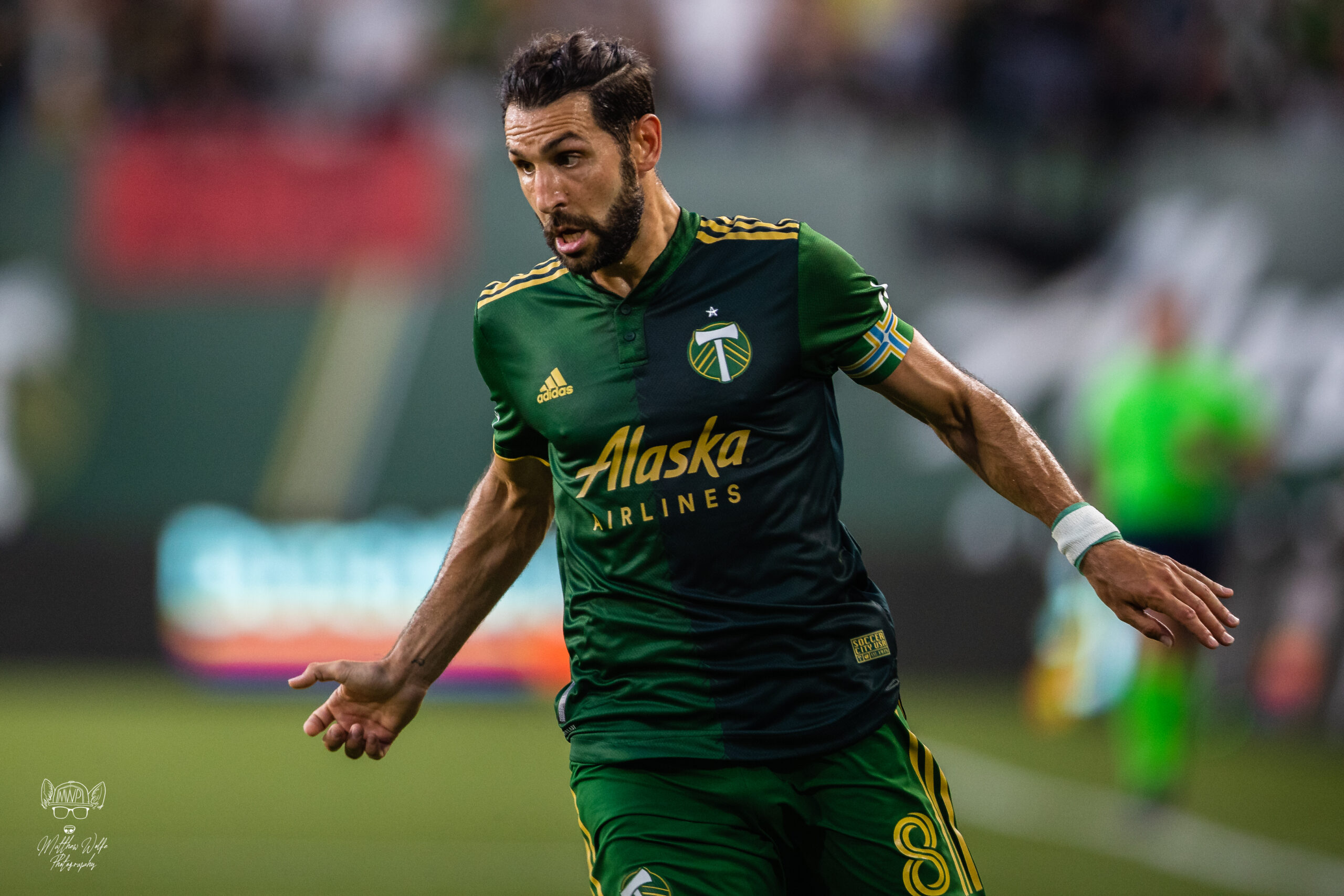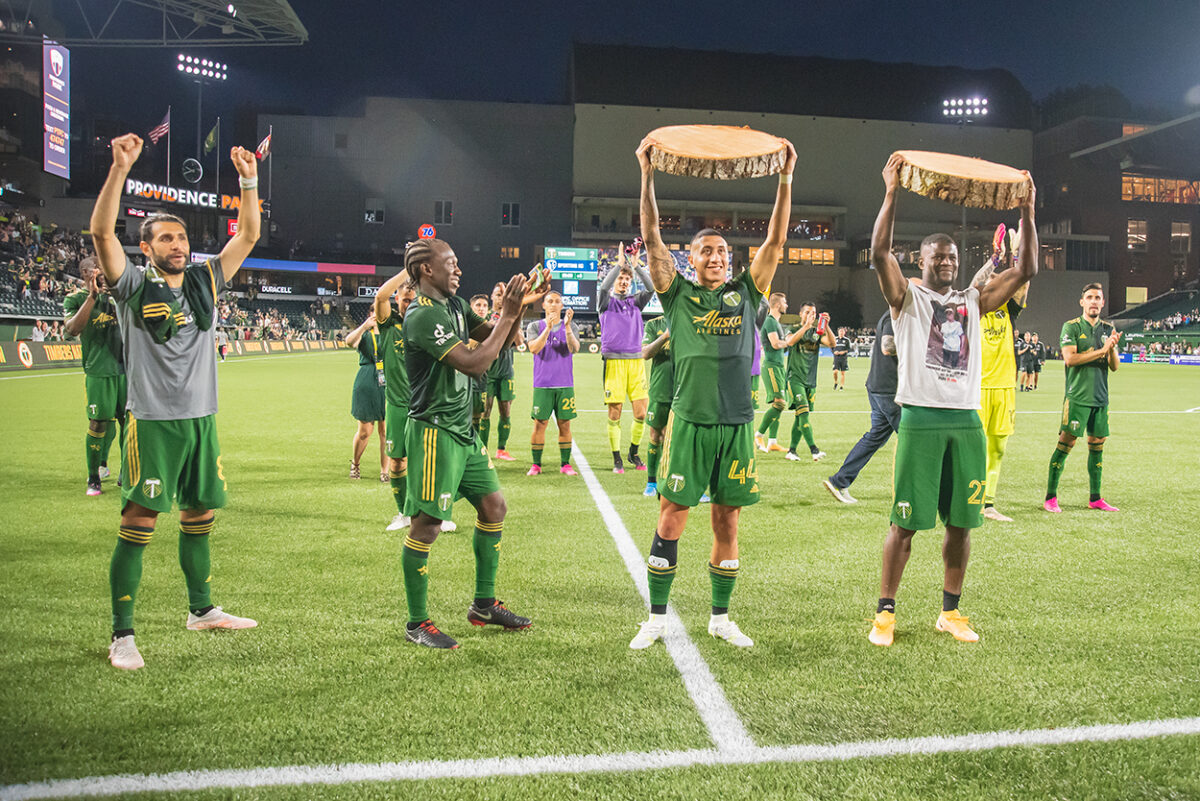This article originally appeared in FourFourTwo USA. We are republishing it on the occasion of Diego Valeri’s departure from the Portland Timbers.
Nobody in Portland can quite believe they’ve got Diego Valeri.
When the Argentine came here in 2013, it was almost by accident. The Timbers had been eyeing then-U.S. men’s national team midfielder Mix Diskerud, an acquisition that was ultimately undone by the fine print in Diskerud’s potential contract. Valeri was plan B.
What nobody could have foreseen was what Valeri would become. After five years in the Rose City, Valeri is not only a player who defines the Portland Timbers on the field, but he’s a man who inspires more effusive emotion off it. The universal love Valeri’s won in Portland transcends any other athlete’s — or probably, for that matter, any other public figure’s.
That level of admiration goes much deeper than what he does on the field. That’s where it started, of course — Valeri is an elite enganche who orchestrates the Timbers’ attack and also happens to score lots of goals — but what has everyone in awe is he also happens to be an almost impossibly good guy. It seems like a violation of some basic law of the universe for a human being to be both as gifted with a ball and as humble, circumspect and generous as Valeri is.
The outer layer of Portland’s love affair with Valeri — the part that’s observable from outside the city — is his community service. The marquee example is his collaboration with Keith Palau, the Timbers supporter who was named “Community MVP” by the league’s MLS WORKS initiative in 2017.
Palau headed up a renovation of the visitation rooms at two foster care facilities — where foster kids get an hour each week to meet with their birth families — in Washington County, just west of Portland. “They tend to be cold and clinical,” Palau says of the facilities. “You know, it’s in a government building.”
Under the banner of 107ist (short for 107 Independent Supporters Trust, the organized, dues-paying core of the Timbers Army), Palau started raising money to redecorate the drab Hillsboro room in Timbers green and gold.
Sometime during the fundraising and planning stages, Palau unexpectedly heard from Valeri. “I want to help,” he said. “Let me know if there’s anything I can do.”
Palau didn’t take it seriously at first. “I thought, ‘that’s nice to say.’ ” But Valeri came back, and he, his wife, Florencia, and their young daughter, Connie, showed up to build furniture and paint.
“You expect them to show up for 30 minutes and pretend to paint a little bit, but no… They were here to work, and they stayed the whole time. They’ve always done more than you’d expect,” says Palau.
A Portland Trend: Everybody Loves Diego

It’s the same story with the other projects Valeri has gotten involved with. Once a year, the Timbers, Thorns and T2 teams, which all share the same ownership, organize Stand Together Week, during which the teams send players to work on community service projects. That’s how Valeri found out about the Children’s Book Bank, a Portland nonprofit that distributes free books to kids in underserved communities.
“He came and volunteered right after training,” remembers Todd Diskin, partnership manager at the Book Bank. “He was amazed that all this existed,” Diskin says, gesturing at the stacks of donated books that fill the nonprofit’s Northeast Portland space.
Diskin gave Valeri the lowdown on childhood literacy: how kids living in poverty get, on average, 25 hours with books between birth and first grade, compared with 1,000 or more hours in more affluent communities. How that discrepancy affects educational outcomes for those children before they even start school. How working to change it is an anti-poverty measure.
Valeri’s own account of his affinity for the Children’s Book Bank is almost startlingly personal, revealing the genuine empathy with which he approaches the world. “Some kids don’t have an atmosphere around them that’s ideal,” he says. “Books are a world where you can be involved with a reality very different than you are living in.”
The Argentinean playmaker spent the day cleaning donated books, but just as he did with the foster care visitation rooms, he didn’t simply show up for a photo opportunity. “He reached out to me not too long after that wanting to volunteer, to do more,” says Diskin.
He started bringing books Connie had outgrown, and at one point, all three Valeris came back for another book cleaning session, which Diskin opened up to Timbers Army members. Connie, now 8, held a book drive at the family’s apartment building.
A handful of other causes in the Portland area have captured Valeri’s interest. One is Operation Pitch Invasion, which restores and builds soccer fields and futsal courts in underprivileged neighborhoods. Valeri is often seen at OPI court openings, and recently bought a piece at Art Without Pity, an art show benefiting the nonprofit.
He’s also worked with the Immigrant and Refugee Community Organization, which organizes soccer clubs and clinics for the youth it serves. One day, he showed up to a futsal training to meet some of those youth.

There’s more he doesn’t talk about, not wanting it to look like he’s out for publicity; it’s common knowledge among Timbers Army regulars that much of Valeri’s work in the community isn’t publicized at all.
Ask him about why he’s gotten involved in these causes and Valeri deflects. Much of it, he says, he gets wind of through Florencia, who he says is “behind everything” (he rarely refers to himself at all, instead defaulting to “we,” by which he means himself and his wife). He’s much happier talking about people like Palau and Diskin than about his own involvement, which he plays down as perfectly normal. “It’s the way I want to live,” he says. “I’ve always lived like that… We’re all responsible for the place we live.”
For a pro team’s star player to be this embedded in his community isn’t normal, of course. But the fact that he sees it that way is an important part of why Valeri is so universally beloved here. To really understand the depth of the love affair between Valeri and this city, you have to understand two things: the soccer community in Portland, and where Valeri himself comes from.
A lot of ink has been spilled about the “authenticity” of the gameday atmosphere at Providence Park: the elaborate tifo, the smoke, the ritualized setlist of never-ending chants What’s not as well understood outside Portland is that the whole phenomenon is a legitimately grassroots endeavor — and that it has a reach that goes well beyond the stadium.
There’s history here, dating back to the NASL Timbers of the 1970s. The modern-day Timbers Army started with the resurrected USL team; back then the supporters group was “25 people banging on pickle buckets,” as Diskin puts it (he was there). In the mid-2000s, when the campaign to get the Timbers into MLS started, it wasn’t a corporate ownership group but members of the Army, who often wound up at City Council meetings, lobbying to bring the league to Portland, hashing out bureaucratic details with reluctant council members.
Today, there are two 501(c)(3) organizations affiliated with the Army: OPI and the Gisele Currier Scholarship Fund, which raises money for local kids who otherwise couldn’t afford to play club soccer.
Mirroring Valeri’s attitude, most people take it as a given. “There happened to be a lot of civic-minded people involved, people who cared about the community,” 107ist board member Sherrilynn Rawlson says. “It seemed like a natural development.”
Start asking around, and you quickly realize the Timbers Army is a huge extended family. Talk to Rawlson, who stands in section 116, and she’ll ask if you know Michelle, in section 103. Michelle will ask if you know Darren, the drummer. Darren, naturally, is friends with Frank, who bangs one of the big drums that are the Army’s beating heart.
Everybody says to talk to Frank.
Franklin Oteiza is a Chilean immigrant who fell in love with the Timbers back in 2003, in the club’s USL days. He was Valeri’s first introduction to this strange fiefdom, serving as a spiritual guide when the Argentine arrived in Portland.
To hear Oteiza tell it, Valeri’s arrival in the Rose City was spun by the fates. He knew about Valeri’s exploits at his boyhood club, Atletico Lanus — how, in 2007, the then-20-year-old helped his club win its first-ever Apertura title, the same year the squad had gotten a hard-fought road draw against league giant Boca Juniors. He remembered commentators hailing Valeri as the next big thing when he went to Porto on loan in 2009.
“I knew if this guy signed, he was going to be the greatest Timber ever in the history of the club,” Oteiza says with the certainty of a man who’s lived and breathed this game his whole life. “I’m talking about a completely different level, something that’s just not common in MLS.”
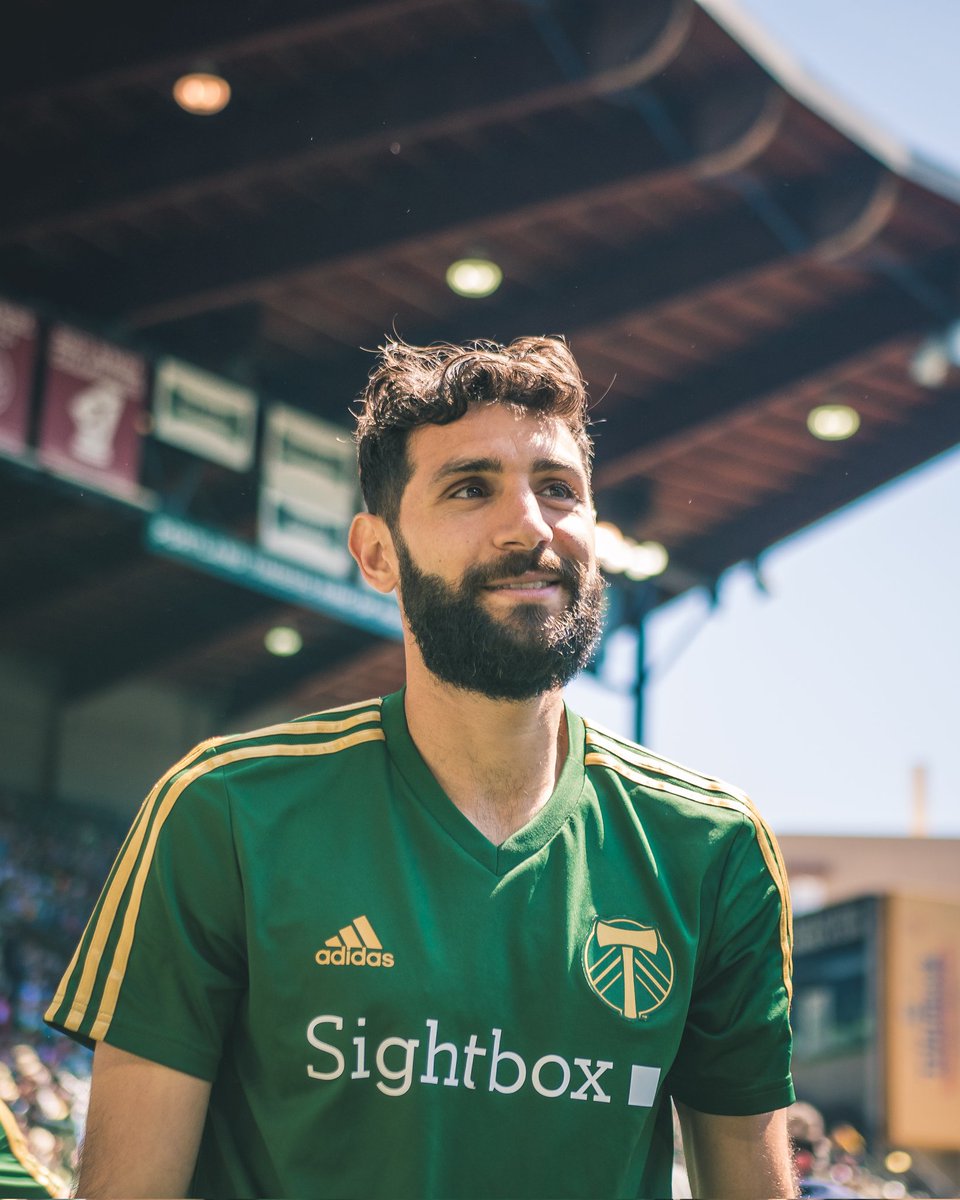
Oteiza felt a kinship with Valeri even when his acquisition by the Timbers was still a rumor. The footballing cultures of Chile and Argentina have a lot of shared DNA, and when Valeri signed with the Timbers, Oteiza couldn’t get over the feeling that he needed to talk to him, to tell him about his adopted home, one South American expat to another.
“It was really important for me to tell this guy we’re for real,” he remembers. “That here we chant and clap and sing for victory for 90-plus minutes… This is it, this is just like Argentina, man. Just like Chile. We sing with all this crazy power, and we’re not going to stop.”
One day shortly after Valeri’s arrival, the drum corps was unloading at the stadium. “As I’m parking, I’m telling my buddy, I need to talk to Diego, I need to talk to Diego,” Oteiza said. As if on cue, Valeri emerged from one of the park’s arched gateways. “Right there in front of me, man.” Valeri, who was still learning English, was relieved to meet somebody who sounded like he came from back home.
“He told me the story about the Timbers, and I was shocked,” says Valeri. “He told me about the history, about the Army, the way they are organized, the way they support the team, they support the city. It was amazing. I didn’t expect that history.”
The grassroots nature of the Army reminded Valeri of the way football works in Argentina, where clubs tend to be supporter-owned. “You don’t find that in different places around the world, in the big clubs,” he says.
Where Valeri and Oteiza come from, intensity and passion often go hand-in-hand with violence and organized crime. “Those were the times, unfortunately, when a lot of crazy stuff was happening in Argentina,” says Oteiza. “People getting killed at the stadiums.”
That’s something Valeri is all too familiar with. “Every team in my country has or [has] had violent experiences,” he says.
By Valeri’s later years at Lanus, Florencia had stopped bringing Connie to matches, fearing for her safety. The family knew they had to get out of Argentina when they were robbed at gunpoint in 2012.
For men living in poverty where Valeri comes from, football “is the only way we have,” Oteiza says, “to release all this incredible frustration and anger and pain.” He recalls being shocked, at his first Timbers game, that people drank beer in the stadium without fights erupting.
Around the same time Valeri arrived in Portland, the Timbers Army, which produces its own line of merchandise, came out with a new t-shirt with a fitting slogan: “Welcome to Paradise.”
It didn’t take long for Valeri to settle in on the pitch. He scored 10 MLS goals in 2013, and it was in that first year that he first kissed the Timbers crest on his shirt after scoring, a gesture that makes Oteiza’s voice shake when he talks about it. In 2015, after spending much of the season recovering from a torn ACL, Valeri took 27 seconds to notch the Timbers’ first goal in the championship match against Columbus—the fastest in MLS Cup history.
By then, Valeri had adopted Portland as his off-the-pitch home in earnest. “When my daughter started to settle down and have a normal life right as a kid,” he says, “there was a moment where I [thought] that Portland is my home.”
Connie, who was four when the Valeris arrived, is a Portland kid through and through. She plays for a youth club at Rose City Futsal and follows the Thorns religiously.
She got her dad into the team, too. Despite growing up with Lanus, Valeri says the Thorns are the first club he’s had the chance to truly support; he rarely attended matches in person as a kid, saying, “our economic situation wasn’t the best.”
It was Connie — who’s more impressed with Tobin Heath’s skills than her dad’s — who got him in the door, but Diego soon became a supporter in his own right. Like his community service work, his support for the Thorns isn’t some occasional token gesture.
“It’s great atmosphere and it’s a great team,” he says. That, too, reminds him of the football culture in Argentina. “You’re waiting for the weekend to be at the stadium to support your team.”
To say Valeri has embraced Portland as his home doesn’t quite capture the intimacy of the relationship he has with this community. The feeling that he belongs to the city is pervasive, and Oteiza isn’t the only Timbers Army regular he’s struck up a friendship with.

After a match one day in 2016, Valeri spotted a rail banner with the words “Valeri’s Club” written in an arc across the top. Intrigued, the Valeris asked who painted the banner. That’s when the family got to know the Thundercats.
The Thundercats, a co-ed futsal team who play at the same Northeast Portland facility as Connie, started out as an open-invite squad. “If you want to learn how to play,” says Michelle DeFord, “that’s what we can do.”
Just like Diskin and Palau, the Thundercats didn’t quite believe it the first time Valeri said he wanted to play with them. “We were like, ‘We can’t break Diego Valeri,’ ” remembers DeFord, who painted the banner. “He can come when we do open play.”
Valeri showed up and kicked a ball around with the adult team and a gaggle of kids. But he wanted to play. Eventually, a week came around when the team was short on subs, and Valeri came through, along with Shade Pratt, who played for the Thorns at the time. Nobody remembers the score, but the league’s mercy rule, which normally kicks in when one team has a seven-goal lead, went ignored.
“You know in The Sandlot, when Benny’s like, ‘put your glove in the air’?” says Jared Grawrock, asked what it was like to play with Valeri. “That’s exactly what it is. You make a run and the ball will get there… I’m still in awe. None of that shine or coolness has gone away.”
That’s the general feeling around the city. Almost everybody, sooner or later, gets emotional talking about him. He still seems too good to be true.
It’s hard to gauge Valeri’s own awareness of his stature here. He’s glad to spread joy from the field, but he recognizes that what he does for a living, ultimately, is just a game. “After the game is done,” he says, “and after you retire, you’re a simple guy. You’re just one more.”
Asked why he, a guy who has three caps for Argentina and is consistently lauded as one of the best players in MLS, wanted to spend a Wednesday night playing in an adult rec league, he pauses, looking faintly bemused.
“Because I love to play,” he answers, as if it were the most obvious thing in the world. “And they’re my friends.”

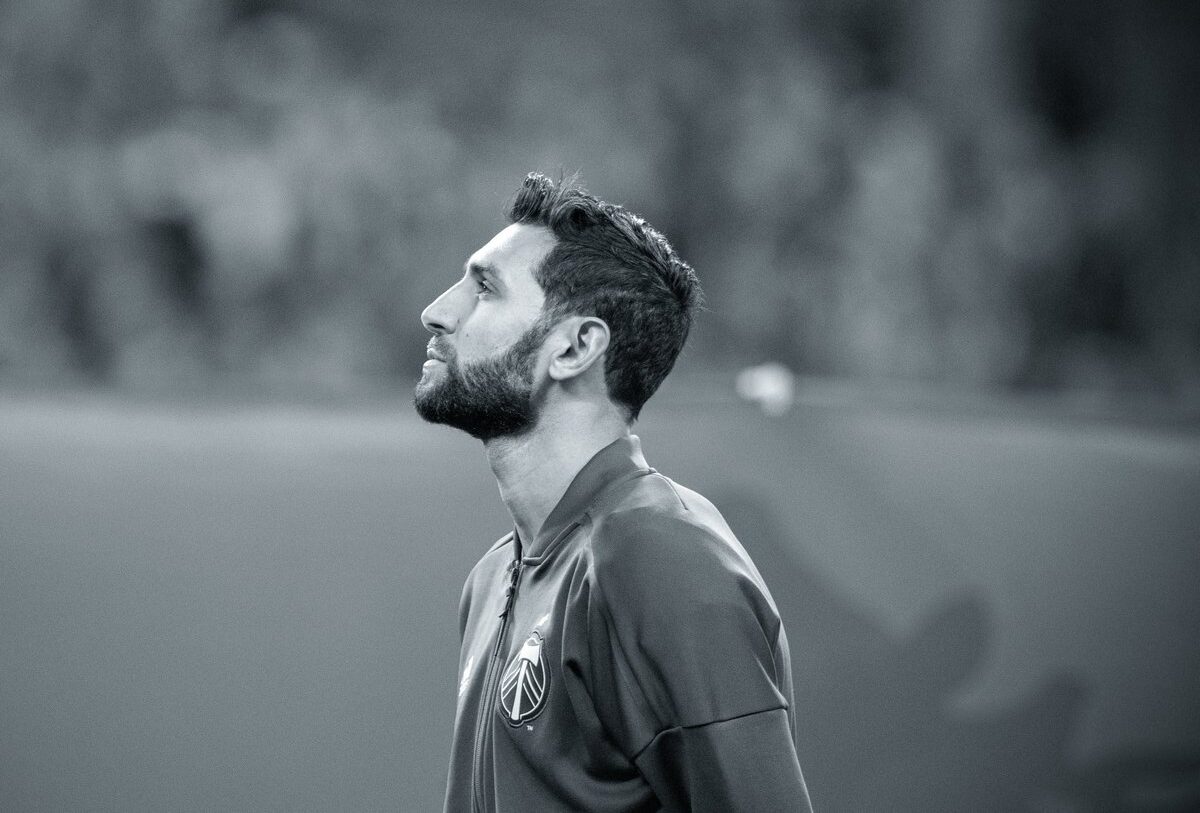
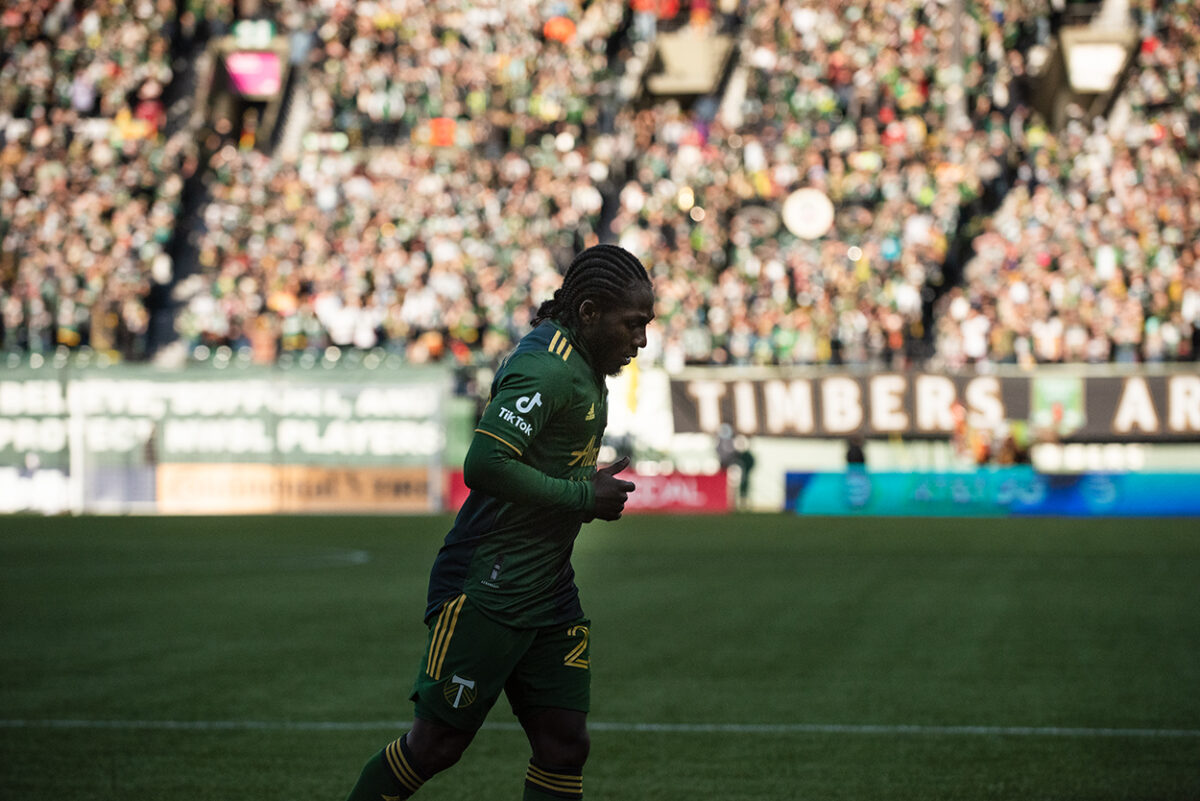
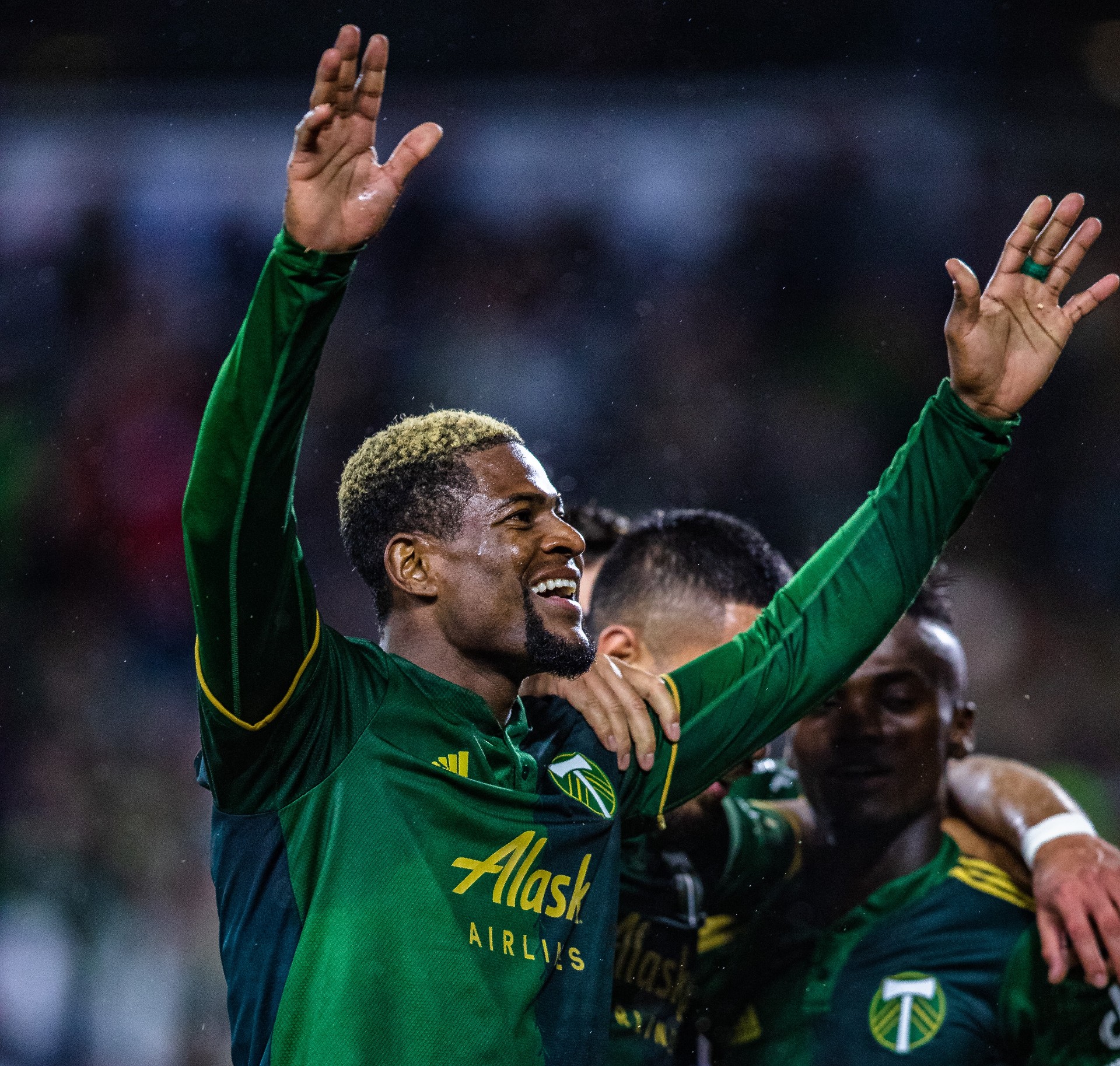
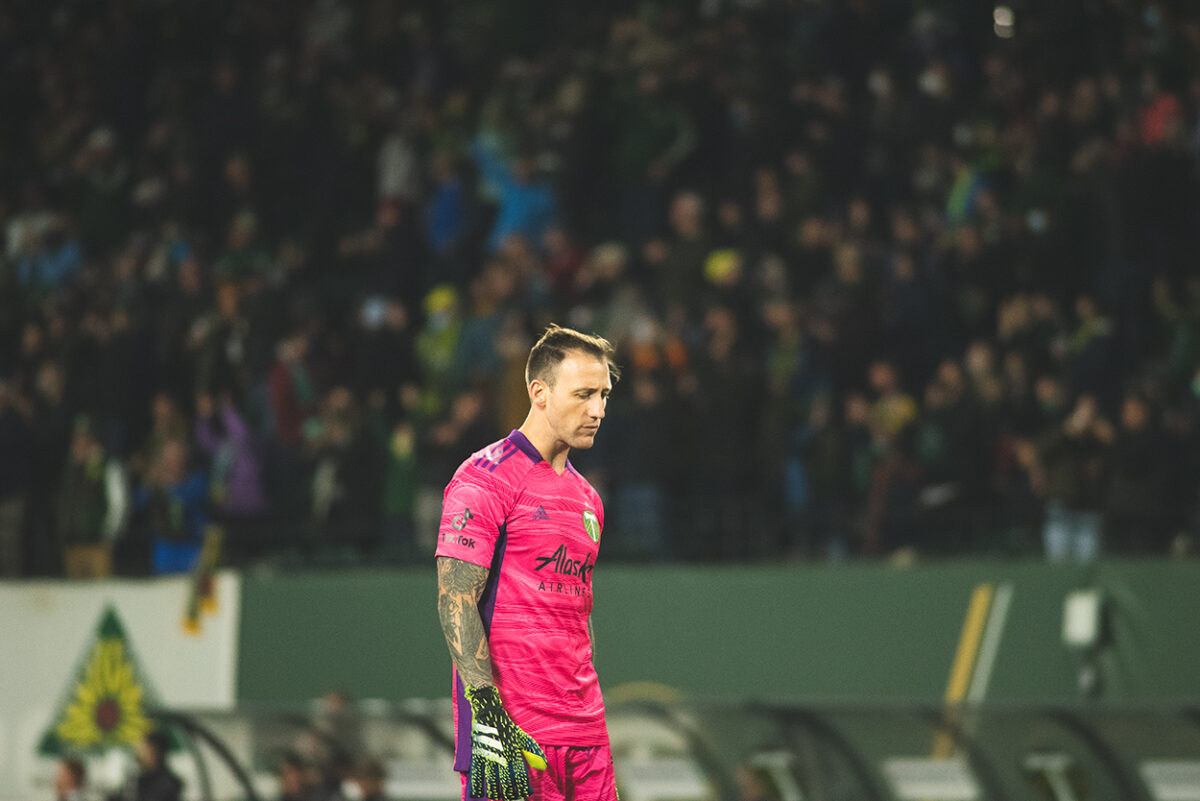
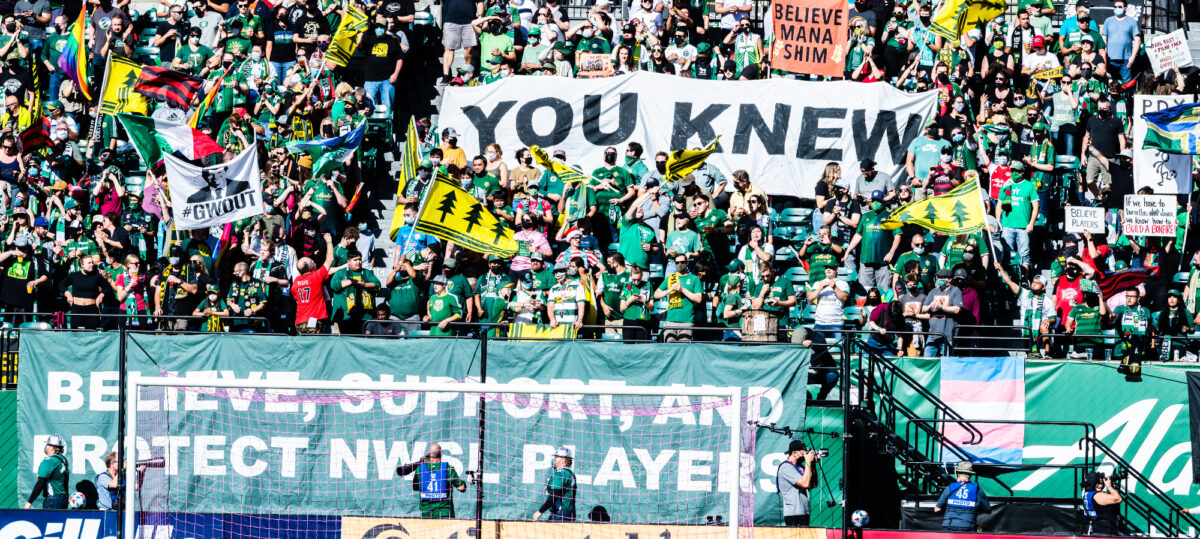
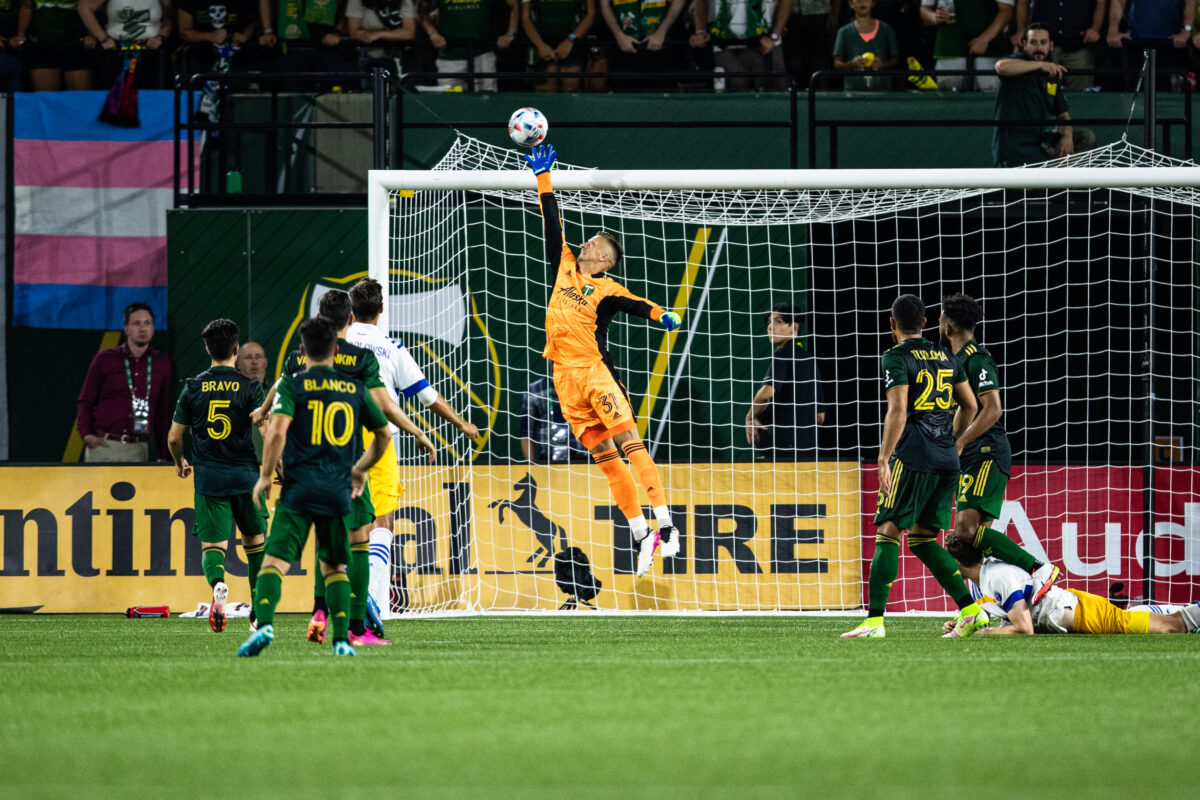
 Unlock with Patreon
Unlock with Patreon